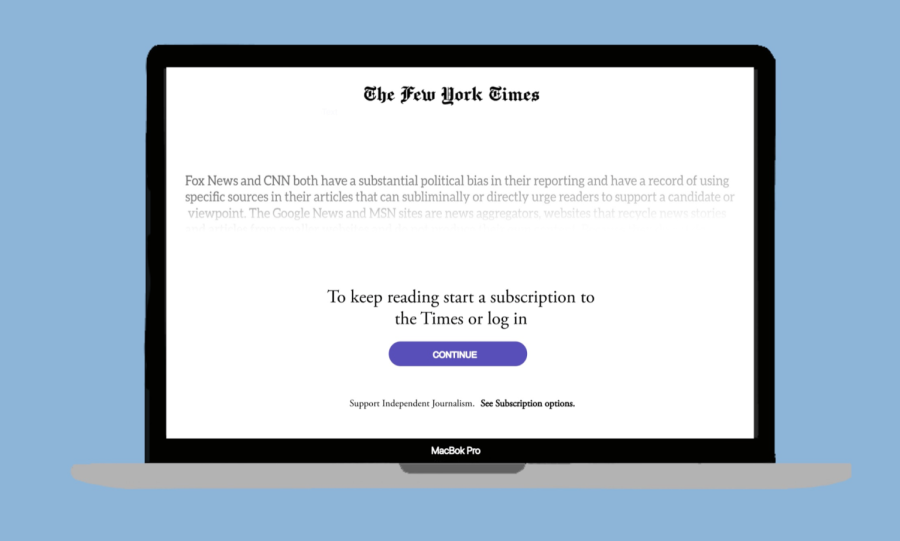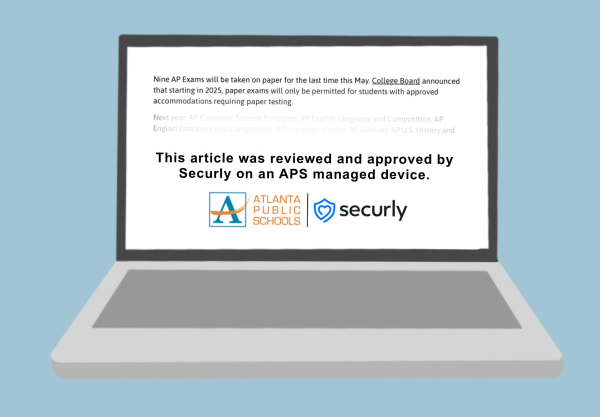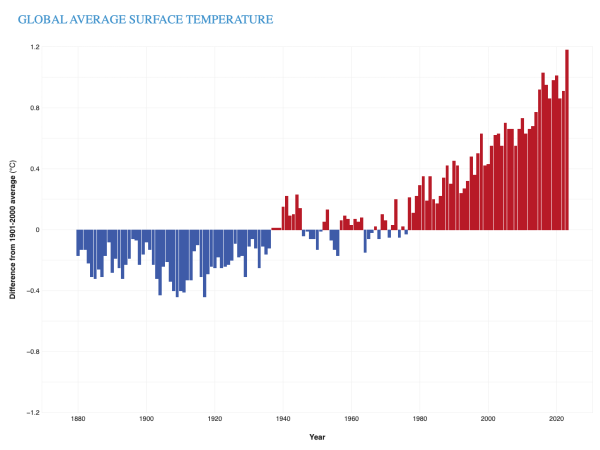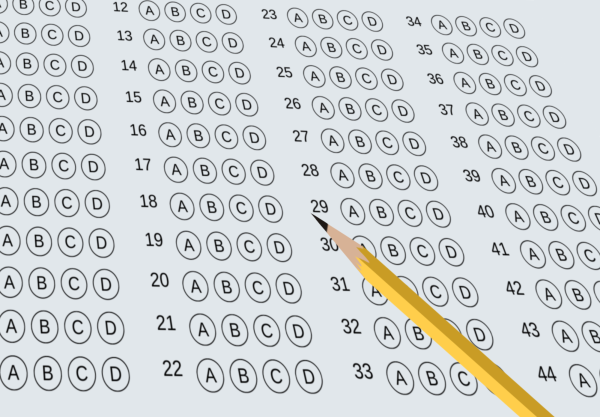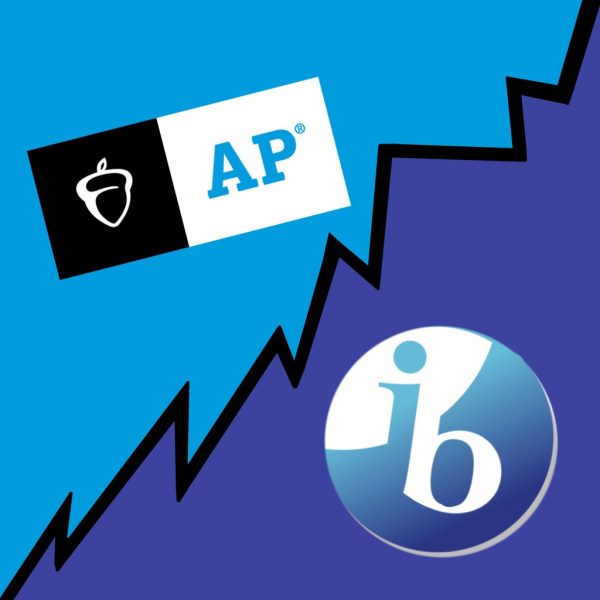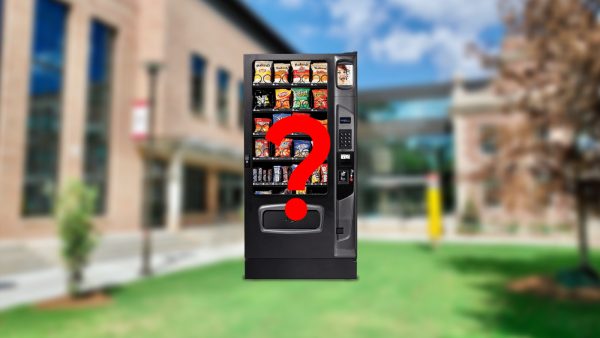Paywalls cause need for media literacy
The New York Times website has over 130 million visitors a month, but only 3.4 percent of those visitors pay for full access to the site.
November 8, 2022
Paywalls are a common problem in our modern, tech-centered world. News sites like the New York Times, the Washington Post, the Wall Street Journal and even local sites such as the Atlanta Journal-Constitution have created a hierarchy that restricts the ability to read trustworthy information to only those who can afford it or are willing to pay.
Well-regarded newspapers offer high-quality, fact-checked news, but they do this at a cost most people can’t afford, turning Americans to lesser-quality news or news aggregators, which are more likely biased and can leave readers confused or misinformed.
Good information is vital to make smart, educated decisions, whether that’s keeping yourself safe from viruses like COVID-19, or deciding on which candidate to vote for in an election. Paywalls can cause Americans to turn to unreliable sources that distort reality and allow personal opinion to misrepresent the news.
In September 2022, out of the top five visited news sites in the United States, only the number one website, the New York Times, uses a paywall. The other four websites, Fox News, CNN, Google News and Microsoft Network were free, but they do have issues with reliability.
Fox News and CNN both have a substantial political bias in their reporting, and have a record of using specific sources in their articles that can subliminally or directly urge readers to support a certain candidate or viewpoint. The Google News and Microsoft sites are news aggregators, or websites that recycle news stories and articles from smaller websites and do not produce their own content. Because they do not report their own stories or fund the articles they push out, they are more likely to display incorrect and sometimes misleading information, as they can show articles from biased websites such as Fox News and CNN.
Apple News, a news aggregator automatically installed on Apple products like iPhones or iPads with 125 million active users, recently aggregated an article about the upcoming Georgia elections with quotes from Tucker Carlson, a far-right TV host, stating and supporting that “It now appears there actually was meaningful voter fraud in Fulton County, Georgia, last November. That is not a conspiracy theory. It’s true.” Though this article was featured on a highly-visited platform, Apple News, it doesn’t mean it’s correct. Snopes, a popular and historically reputable fact-checking website, said that both the aggregated article and Carlson’s quote are incorrect, as there is no evidence of voter fraud in Fulton County in the 2021 elections. Despite aggregators being some of the most used news websites in the United States, they are often some of the least trustworthy, due to the wide amount of information they put out, and the fact that it isn’t always double-checked, making most of the websites people go to for news biased and potentially unreliable.
With the incidence of paywalls, some people will reluctantly give in and pay for good news. However, others will choose to keep finding their news for free, meaning they will likely resort to social media or other websites that produce less reliable news. That in turn can skew Americans’ viewpoints towards the world and indirectly cause the promotion of political conspiracy theories or just increased partisanship in the United States.
News literacy is important to ensure that voters are informed, especially with Election Day just around the corner. According to Pew Research Center, because of the internet, Americans are experiencing an information overload, much of which is incorrect or misleading due to paywalls on more trustworthy sources such as the New York Times.
So, how should people navigate the saturated internet? If an article or fact seems surprising, fact-check it. A good resource is Snopes, a fact-checking website that updates itself to be up to date with popular social media posts. Ad Fontes Media has a chart that ranks various news sources’ media bias and fact reporting, which is a helpful tool to check if a source is reputable.
But, all news providers aren’t represented on the chart, so to make sure the news you’re consuming is reliable, try a reliable news site like the Associated Press, which is filed as a non-profit and charges readers no fees. The restriction of high-quality news that paywalls puts on readers can be detrimental to the world’s political climate. Misinformation is a dangerous thing, and turning to less reputable news sources without fact checking could potentially instill Americans with a false or skewed sense of knowledge, which in turn can influence election results.

